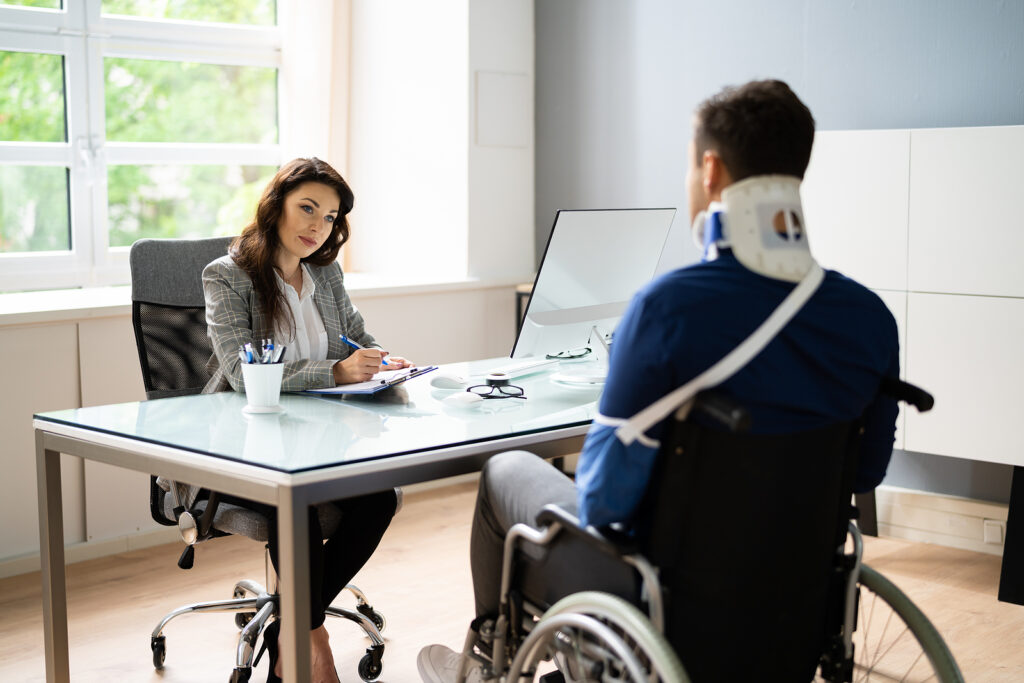Are you currently receiving workers’ compensation benefits from a recent workplace or work-related injury? If so, it might be in your best interest to maintain your employment for the time being. Wanting to quit your job after suffering injuries in a workplace accident is understandable, but when you are on workers’ comp, it is not always the wisest choice.
Continue reading to learn more about workers’ compensation benefits, and how quitting your job could cause issues.

Employment and Workers’ Compensation
Whether you can quit a job you are receiving workers’ compensation benefits at depends on a wide range of factors, from the state you live in and the status of your recovery to the benefits you are eligible for, why you wish to leave your position, and much more. For this reason, and because the matter of maintaining employment while on workers’ compensation is not a cut-or-dry matter, it is strongly encouraged to seek advice from a licensed and qualified Indiana workplace injury lawyer.
Medical Expenses and Hospital Bills are Covered Under Workers’ Comp Benefits
If you are injured on the job or while performing work-related duties, all of your medical expenses and hospital bills will be covered under your workers compensation benefits. Even if you quit your job, these benefits are still available to you. After all, your injuries from your work-related accident do not suddenly heal themselves if you decide to terminate your position at your place of employment.
COMMON MEDICAL EXPENSES:
▶ Medical Treatments
▶ Hospitalization
▶ Surgery
▶ Rehabilitation
▶ Physical Therapy
▶ Medications
▶ Mileage to Doctor’s Appointments
▶ Medical Devices (Wheelchairs, Crutches, Braces, Etc.)
Once the worker compensation judge that you have reached maximum medical improvement (MMI), which means your condition cannot be improved by further treatment, your workers’ compensation benefits for medical expenses and hospital bills will at least partially end. The judge makes his or her decision based upon the opinion of the doctor chosen by the worker compensation carrier, your own physician and sometimes a physician chosen by the judge. However, this does not mean that all workers compensation benefits have been extinguished. As a result of your workplace accident and injuries, you could require compensation for future medical care, medications, medical devices, and other future losses, such as partial or permanent disability and loss of inability to return to full employment.
Coverage for Lost Wages
When an injured worker is recovering from a workplace accident, they are unable to earn wages in the same way they were able to before the accident. Workers’ compensation benefits are designed to cover such losses, thus bridging the financial gap between leaving work and returning to work. However, the essential term here is worker. If a worker quits their job, there is no returning to their job, which can cause them to lose their worker’s compensation benefits.
Temporary and Permanent Disability
There are different types of categories an injured worker can be placed in depending on the degree of their impairment. These categories include Temporary Total Disability (TTD), Temporary Partial Disability (TPD), Permanent Partial Disability (PPD), and Permanent Total Disability (PTD). With temporary disability benefits, an injured worker generally receives 2/3rds of their average weekly pay. Injured workers who have suffered permanent disabilities will generally receive a lump-sum settlement, but in other cases may receive continued worker’s compensation payments.
ADDITIONAL FACTS TO CONSIDER:
☑ Quitting a job while on workers’ compensation may have a negative effect on your settlement.
☑ Never quit your job before making a workers’ compensation claim.
☑ If you are classified as TTD, but your employer does not have light duty work available, you can still receive workers’ comp benefits.
☑ If you quit while receiving workers’ compensation benefits, this can cause issues.
You have the right to quit your job on workers’ compensation, and no one will stop you, but understand that there is a risk when it comes to receiving the full and fair benefits you deserve. Talk to a workplace injury lawyer first, before making any decisions about your employment.
Are you having trouble understanding your workers compensation benefits in Indiana? Contact the Law Office of Craven, Hoover, and Blazek P.C. at 317-881-2700 to speak with a licensed and experienced workers’ compensation attorney in Indianapolis, Indiana. We offer free initial consultations, over the phone, via online video conference, or in person at our Indy office. Our accident lawyers represent injured persons all throughout the state of Indiana.
Related Posts:
General Workers’ Compensation Benefits and How to Claim Them
Were You Involved in an Accident While Driving Your Company Car?
Common Warehouse Accidents Covered By Workers’ Compensation

